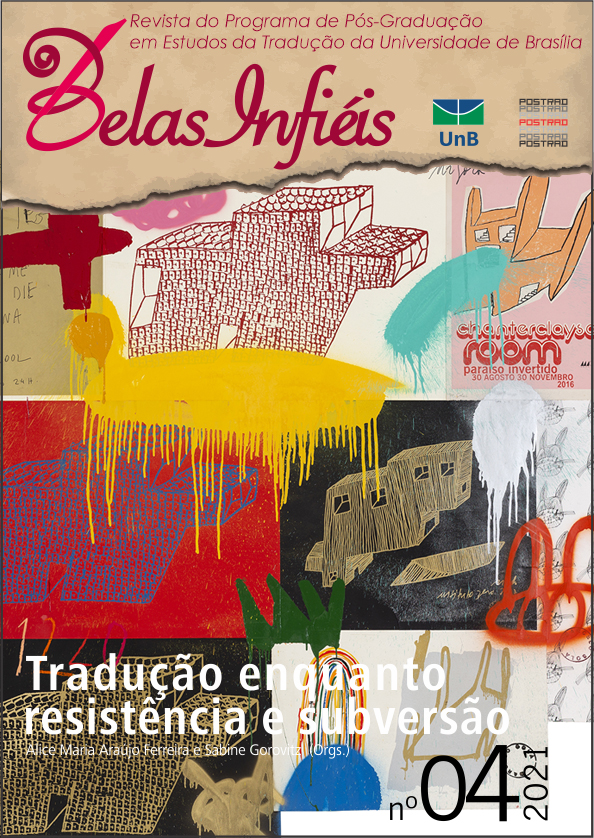The lie of the Migrant: An ethical challenge
DOI:
https://doi.org/10.26512/belasinfieis.v10.n4.2021.36525Keywords:
Reception policy. Migratory humanitarian catastrophe. Exilic experience. Forms of truth. Trauma. Right of asylum. Lie. Psychoanalysis. Literature. Philosophy. Translation studies. Europe.Abstract
In the context of the migration drama in Europe, two sorts of narratives accompany the experience in exile: proliferation of stories of one’s life on paper or on the web, and the stories of the journey to be told in front of the immigration officers and caseworkers at the home office. However, the migrant lies. The migrant lies in the story he tells himself in order to bear the unbearable, and lies to the authorities in order to fit a number of criteria to get the refugee status. But it is not about lying, it is about responding to a legitimizing framework that is situated between the truth and the lie. These are two truth carriers, greyzones that the historical events like the Holocaust has taught us to recognize, the disposition to listen that psychoanalysis has taught us to respect and the theory of literature such as auto-fiction has taught us to interpret. The current ethos of exile originates from a secret, to be respected to the point where it establishes an ethic, an ethic of exile founded on the detachment that the secret implies. This lets us reflect on the issue of secret in the light of the Levinissian thought. Such an ethic destabilizes the traditional principals of hospitality that still preside in the application of asylum law, because they suppose from each other a plain and sovereign speech.
Downloads
References
NOUSS, Alexis. P. 239-251. In: CASTELAIN, Arnold (dir.). Traduction et migration : Enjeux éthiques et techniques. Nouvelle édition [en ligne]. Paris : Presses de l’Inalco, 2020.
Downloads
Published
How to Cite
Issue
Section
License
Copyright (c) 2021 CC BY

This work is licensed under a Creative Commons Attribution 4.0 International License.
Given the public access to this journal, the texts are free to use but requires the recognition of the original authorship and initial publication in this journal to be properly stated.
 The journal allows the use of works published for non-commercial purposes, including the right to submit the work to publicly accessible databases. Published contributions are the sole and exclusive responsibility of the author(s).Â



















